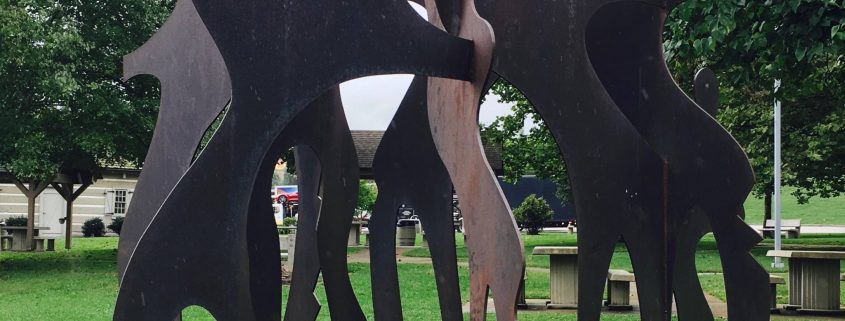What Is Your Level of Incivility?
Today, everything is personal and we react by disassociating and unfriending neighbors and relatives on social media when we don’t agree on issues, politics and beliefs. We no longer give each other room, let alone respect for having a different perspective, a different experience or a different belief. Trust is the foundation for any and all relationships; and as I have blogged before, trust has eroded to threads. It is on life support. Our diminished ability to trust is hurting our ability to forgive and adding to our incivility. Our incivility is keeping us from nurturing diversity, inclusion and equity, which is everyone’s responsibility if we are going to maintain and grow democracy.
“We belong in a bundle of life. We say, ‘A person is a person through other persons.’ It is not, ‘I think therefore I am.’ It says rather, ‘I am human because I belong. I participate, I share.” – Desmond Tutu, No Future Without Forgiveness
We spend more time telling than asking. We have license to be directors, finger-pointers and critics. We use liberal amounts of “you should…” as in “You should be more __________.” “You should do more __________.” “You should be like __________.” “You should see or watch __________.” “You should read __________. ” The word “should” is about judgment as in the person you are addressing is not worthy and you know what’s best. “Should” is about control and is abusive rather than inspiring.
When we do ask a question, it’s usually a simple “Why?” asked in a condescending tone of voice that challenges and threatens.
Unfortunately, work and school are the places where you cannot disassociate with others. Fact is, we spend more time with the people with whom we work and learn than our significant others, family and friends. It’s estimated that weekly rudeness at work has gone from 25% in 1998 to over 60% in 2016. Incivility and rudeness have become a pandemic right. We justify rudeness in so many ways and it’s hurting business and education in so many ways including the health of these environments. Cohorts forget that the way they treat each other has tremendous impact on how the visitor, guest, customer, patient or client gets treated.
“Nothing in life is as important as you think it is, while you are thinking about it.”
– Daniel Kahneman, Thinking Fast and Slow
Kahneman’s best selling Thinking Fast and Slow, describes how the two systems of our brains are constantly fighting over who is in charge. System one is automatic and impulsive and uses less energy, thus helps us with survival as in our quick response when we hear a gunshot. We use system one over 90% of the time, thus it tends to dominate our behavior and reaction to situations and others. System two requires more energy as it is conscious, mindful and thoughtful. The ability to trust others and use self-control are centered in system two. Critical thinking, our other national deficit, resides in system two.
Kahneman uses the example of a bat and ball costing $1.10. If the bat costs $1 more than the ball, then how much does the ball cost? I bet you said or thought the ball cost $0.10 and you’d be wrong!* System one thinking over ruled system two thinking. Think again, this time use your system two.
I recently began re-reading How To Want What You Have: Discovering the Grandeur of Ordinary Existence by Timothy Miller, PhD (1995). Miller’s writing is timeless wisdom of coming to know that our insatiable desires cause us to spend a lifetime of wanting what we don’t have leading to a lifetime of unhappiness. We want: to be better looking; be respected; live in a bigger house; drive a newer car; have greater status; have a better significant other; even wish we had a better childhood. Most of all, we seek freedom from the fear of losing what we do have. We know this, but we rarely admit or discuss this. It requires system two thinking.
If we are going to become more civil to each other, we are going to have to exercise system two thinking more often. We are going to have stop reacting and become more curious. We are going to have to ask more questions than judge and tell. We are going to have to acknowledge our fear is based on what we know the least. We are going to have to fight our ignorance. We may have to lose our sight, become blind to the visual cues that stoke our system one thinking. If we are going to come together, we are going to have to learn and practice compassion. We are going to have to learn to love one another by first loving ourselves with all our imperfections, scars and failures. We are worthy and so are the others with whom we come in contact.
“We belong in a bundle of life. We say, ‘A person is a person through other persons.’ It is not, ‘I think therefore I am.’ It says rather, ‘I am human because I belong. I participate, I share.” – Desmond Tutu, No Future Without Forgiveness
* The correct answer is $0.05. If the bat costs $1 more than the ball, then the actual cost of the bat is $1.05.







